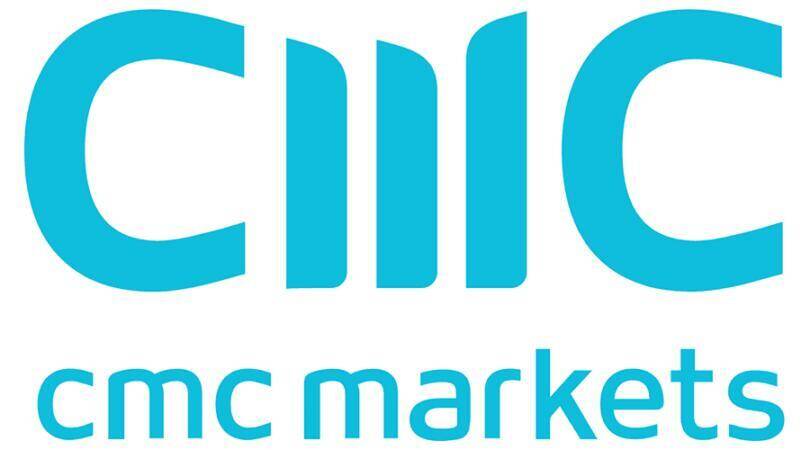Contents:


Additionally, users can create pull requests to submit changes they have made back to the main project. This allows the project maintainer to review changes and approve or reject them. GitLab and GitHub are two of the most popular version control systems available today.
- So, let’s take a look at current popularity, growth dynamics, future trends, and user profiles.
- Cloud providers, virtual machines, directly on the server, Linux, Windows, Puppet, Chef, and so on.
- This helps them avoid the mistakes that can be made when working with unversioned code.
GitHub is better suited for individual projects, while BitBucket is much better for enterprise-level projects. In broad terms, both Bitbucket and GitHub have advantages and features that make them both well-suited to certain types of development teams. Moreover, GitHub can host your project’s source codes in various programming languages and keep the track of the each of the changes made to every iteration. Git is a useful DevOps tool used for source code management. It is a free and open-source version control system, used to track changes and make working with multiple developers easier.
Difference between Bitbucket vs Github vs Gitlab
And finally, it’s clear that the pricing plans differ between GitHub and GitLab, but the pricing structures are different. It’s unfair to say which tool is cheaper than the other since they offer different functionality and capabilities. Next, the flow of GitHub and GitLab is slightly different. GitHub centers around merging new branches with the main branch. In GitLab, users create multiple branches beyond the main branch, which requires more testing.
With BitBucket, you can manage and store your code with more flexibility. Using Bitbucket’s branch permissions, you can control who is allowed to write or merge to specific branches. Moreover, you can manage your git repositories, collaborate on your source code, and follow the development process.
Over 500 project management apps and integrations are also available on the GitHub marketplace. While the screenshot above highlights GitHub, GitLab offers equally powerful code collaboration and review tools. These tools highlight all changes and make it easy for whoever reviews the code. It can help you catch mistakes early, reducing the chance of fatal errors or security flaws. For example, you can view and discuss pull requests in real-time, make changes, and get a complete visual overview of the code differences.
- Beyond that, you can set and track milestones and gauge productivity with various charts and reports.
- Git is free, open-source software for version control, which helps developers track and manage changes to their code.
- The enterprise solution also includes 50,000 monthly CI/CD minutes, also allowing guest users.
According to a recent study, difference between git github gitlab and bitbucket is used by 78% of developers, while GitLab is used by only 14%. Additionally, GitHub has a wider range of features that make it better suited for larger code projects. Task management – BitBucket also features task management functionality, which allows developers to manage their tasks in a more organized way. This makes it easier to track progress and stay on track with your deadlines. Github Pull Requests – This is a great way to get feedback on your code changes from other developers. You can create a pull request, add comments, and set a due date.
Integration
The acquisition has stirred up controversy in the open source community. A lot of people are worried that Github will lose its open source roots so many are looking at alternatives like Gitlab. You can also access the latest and greatest in development tools such as GitHub Codespaces, GitHub Co-Pilot, and much much more, with great new features being shipped every day. All three of these services also offers a self-hosted option – typically for enterprise customers or users with special security requirements. You can configure your Git plugin to allow OAuth 2.0authentication for Bitbucket integrations to access files stored in a public or private repository.
Git rebase: Everything You Need to Know – How-To Geek
Git rebase: Everything You Need to Know.
Posted: Mon, 12 Dec 2022 08:00:00 GMT [source]
Both Bitbucket and GitHub provide various third-party integrations, so let’s see what they offer. In terms of branch permissions, GitHub provides branch protection rules to enforce specified workflows. For example, set a rule that any pull request should be approved or passed status checks before being merged to a branch.
Free Plan With Unlimited Repositories
It is not open source but by buying the self-hosted version the full source code is provided. Git is a free and open source distributed version control system designed to handle everything from small to very large projects with speed and efficiency. We chose github + github actions in order to manage the code versioning and the CI on the same software. While Github and Bitbucket offer self-hosting, only Gitlab is open source, which allows its self-hosted option to be the cheapest. That said, you may want additional support support,, so be sure to check out the pricing pages above to make sure you’re getting the best plan for your needs.

This replaces hefty files—often video, audio samples, and datasets—with text pointers. Accordingly, Git LFS 2.0 and smart disaster recovery are supported too. Another core difference is thatGitLaboffers you a complete software development solution. They advertise themselves as a complete DevOps platform for a reason. That said,GitLab does offer integrationswith some third-party programs and platforms such as Jira, Microsoft Teams, Slack, Gmail, and numerous other apps and platforms. InGitLab’sworkflow, you create multiple yet separate stable branches beyond that of the master branch for each set of changes you make.
With TestGorilla, you can simplify your recruitment process and hire the best software developers out there.Get started for free today. No public information on total number of registered users. The last reported number was 10 million registered users in 2019.

This free Git repository offers both open and private repositories and is a complete DevOps platform. From project planning, code management, and security to monitoring, a developer can perform all tasks involved in a project on this platform. Teams can collaborate here for the betterment of the software.
Key differences of Bitbucket vs GitHub vs GitLab
With git, you just pull the entire code and history to your system. VCS synchronizes the versions and ensures that your changes don’t conflict with others using the same repository. If your organization is unable to afford a particular platform, that platform will be out of the selection process, no matter its features.

It was developed by Chris Wanstrath, P. J. Hyett, Tom Preston-Werner, and Scott Chacon using Ruby on Rails in February 2008. Because of its first-mover advantage, GitHub became the home base of many open-source code repositories. Both run on Linux servers, come with issue trackers and offer a wide range of third-party integrations and import tools.
A common problem occurs when using Apache as a reverse proxy in front of GitLab when it is configured to not allow encoded slashes in URLs. Apache decodes the encoded slashes and sends the malformed request to GitLab. If you have a reverse proxy in front of your GitLab On-Premise instance, make sure that requests are forwarded to the GitLab instance exactly as they are received. You can configure your integration either by using a GitLab or GitLab On-Premise deployment. Allows you to access repositories simply by using your login credentials. Despite these high-level similarities, there are important differences between GitLab and GitHub.
Today GitLab is being used by more than 100,000 organizations. Collaborative Coding – The automatic environment setup makes it easier for someone to contribute to their project. Build, test, debug, and deploy your code in the cloud while allowing your contributors to alert you to changes they’ve made and pushed to a repository. Support for Jira, Slack, and other tools for managing projects and testing. EnterRewind, a tool that protects your data against crashes or failures.
https://traderoom.info/’s enterprise option is $231 per user annually, while GitLab’s is $1188 annually. Do remember that migrating a project from GitLab can be challenging as their option to do a direct file transfer is still in beta and not ready for production. While GitHub has a lot of great third-party integrations and workarounds for DevOps workflow and CI/CD, GitLab allows you to do all of that within its platform. It helps you understand complex workflows and easily communicate with your team members about the project status.
If you want to just contribute to other open source projects then use GitHub. These days GitHub acts as online portfolio for a person, where one can upload some of his own projects and mention the GitHub account in his resume. Having a active GitHub account helps to distinguish one from others, and shows how much he has worked for open source. While GitLab is a decent solution, especially for Digital Ocean and GitLab is free for private repositories while GitHub charges. Many organizations uses GitLab while they want there codebase to be private. Bitbucket restricts you to work with only 5 people for free, GitLab.com is completely free.
So if you want to work with Digital Ocean then GitLab is best and when you want to You want to host your 1000 repositories and 100 colleagues somewhere then GitLab.com is the solution. Bitbucket is one of the most popular while it comes at organization’s point of view. More organizations host their projects in Bitbucket compared to GitLab, due to its user friendly interface. Bitbucket also offers free private repositories so only members can access the codebase. So if you are a organization and want to host your project, then go for Bitbucket, and even you can individually host some projects there too, apart from organization. Each platform offers slightly different offerings at higher price points.

Leave a Reply